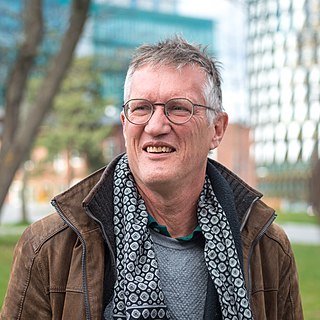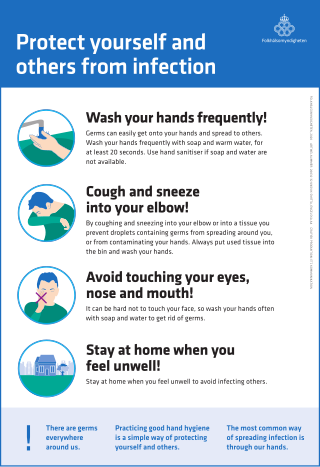USA
| | This section needs expansion. You can help by adding to it. (November 2021) |
Several COVID-19 commissions have been proposed to examine national responses to the COVID-19 pandemic.
The Norwegian government appointed a commission on 24 April 2020, which submitted its report to on 14 April 2021. [1]
| | This section needs expansion. You can help by adding to it. (November 2021) |
According to the Guardian, a group of bereaved families called for a "judge-led" public inquiry into the British government response to the COVID-19 pandemic. The Guardian reported that other forms of public inquiry, such as a royal commission, are available should the government "defy rising pressure for a statutory public inquiry". [2]
In May 2021, the UK government announced a public inquiry will begin in Spring of 2022 called the UK Covid-19 Inquiry, [3] [4] and the Scottish Government established the Scottish Covid-19 Inquiry. The Independent reported that the date of the inquiry may be pushed beyond the promised date. [5]
A government-appointed commission in Sweden published its report in October 2021. [6]

The Inquiries Act 2005 is an Act of the Parliament of the United Kingdom. According to the explanatory notes, published by the Department for Constitutional Affairs, the Act "is intended to provide a comprehensive statutory framework for inquiries set up by Ministers to look into matters of public concern".

Heather Carol Hallett, Baroness Hallett,, is a retired English judge of the Court of Appeal and a crossbench life peer. The first woman to chair the Bar Council and the fifth woman to sit in the Court of Appeal, Hallett led the independent inquest into the 7/7 bombings. In April 2019, she was appointed Chair of the Security Vettings Appeal Panel. In December 2021, she was announced as the chair of the public inquiry into the UK Government's handling of the COVID-19 pandemic. On 29 June 2022, the Government accepted Baroness Hallett's proposed terms of reference for the inquiry, with minor changes suggested by the devolved administrations.

Matthew John David Hancock is a British politician who served as Minister for the Cabinet Office and Paymaster General from 2015 to 2016, Secretary of State for Digital, Culture, Media and Sport from January to July 2018, and Secretary of State for Health and Social Care from 2018 to 2021. He has been Member of Parliament (MP) for West Suffolk since 2010. He is a member of the Conservative Party, but now sits in the House of Commons as an independent, having had the whip suspended since November 2022.

The COVID-19 pandemic in the United Kingdom is a part of the worldwide pandemic of coronavirus disease 2019 (COVID-19) caused by severe acute respiratory syndrome coronavirus 2 (SARS-CoV-2). In the United Kingdom, it has resulted in 24,812,582 confirmed cases, and is associated with 232,112 deaths.

Nils Anders Tegnell is a Swedish civil servant and physician specialising in infectious disease. From 2013 until his resignation in March 2022 he was Sweden's state epidemiologist.

In response to the COVID-19 pandemic in the United Kingdom, the UK Government introduced various public health and economic measures to mitigate its impact. Devolution meant that the four nations' administrative responses to the pandemic differed; the Scottish Government, the Welsh Government, and the Northern Ireland Executive produced different policies to those that apply in England. Numerous laws were enacted or introduced throughout the crisis.

Saleyha Ahsan is a British physician, presenter and journalist. She has worked as a humanitarian doctor in conflict zones and as an A&E doctor in the UK, presented programmes including Trust Me I’m a Doctor and reported on conflict, social affairs, medicine, healthcare and the COVID-19 pandemic.

Sweden's unique response to the COVID-19 pandemic has been the subject of significant controversy in both domestic and international circles. Unlike most countries, which strongly recommended or introduced widespread sector closures, quarantining, and lockdown measures to curb the spread of the coronavirus disease 2019, the government of Sweden took a more lenient approach to the pandemic, prioritizing the economy and only pursuing social distancing measures such as bans on large gatherings and limited travel restrictions.

The UK Health Security Agency (UKHSA) is a government agency in the United Kingdom, responsible since April 2021 for England-wide public health protection and infectious disease capability and replacing Public Health England. It is an executive agency of the Department of Health and Social Care (DHSC).

The COVID-19 pandemic has revealed race-based health care disparities in many countries, including the United States, United Kingdom, Norway, Sweden, Canada, and Singapore. These disparities are believed to originate from structural racism in these countries which pre-dates the pandemic; a commentary in The BMJ noted that "ethnoracialised differences in health outcomes have become the new normal across the world" as a result of ethnic and racial disparities in COVID-19 healthcare, determined by social factors. Data from the United States and elsewhere shows that minorities, especially black people, have been infected and killed at a disproportionate rate to white people.
This article presents official statistics gathered during the COVID-19 pandemic in the United Kingdom.

The National Covid Memorial Wall in London is a public mural painted by volunteers to commemorate victims of the COVID-19 pandemic in the United Kingdom. Started in March 2021 and stretching more than one-third mile along the South Bank of the River Thames, opposite the Palace of Westminster, the mural consists of approximately 240,000 red and pink hearts, one for each of the casualties of COVID-19 in the United Kingdom who died with COVID-19 on their death certificate. The intent was for each heart to be "individually hand-painted; utterly unique, just like the loved ones we’ve lost".
The UK Covid-19 Inquiry is an ongoing, independent public inquiry into the United Kingdom's response to, and the impact of, the COVID-19 pandemic, and to learn lessons for the future. Public hearings began in June 2023. Boris Johnson announced the inquiry in May 2021, to start in Spring 2022. In December 2021, Heather Hallett was announced as the chair of the inquiry.
Covid-19 Bereaved Families for Justice is a pressure group of over 4,000 relatives of people who have died during the COVID-19 pandemic in the United Kingdom. The group created the National Covid Memorial Wall and runs a support group on Facebook. They called for a statutory public inquiry into the UK government's handling of the pandemic. On 12 May 2021, then-prime minister Boris Johnson announced that the UK Covid-19 Inquiry would begin in Spring 2022.

The United Kingdom's response to the COVID-19 pandemic consists of various measures by the healthcare community, the British and devolved governments, the military and the research sector.

The following is a timeline of the COVID-19 pandemic in the United Kingdom from January to June 2022.

The following is a timeline of the COVID-19 pandemic in the United Kingdom from July 2022 to December 2022.
The following is a timeline of the COVID-19 pandemic in the United Kingdom in 2023.
The Scottish COVID-19 Inquiry is an independent public inquiry into Scotland's response to, and the impact of, the COVID-19 pandemic, and to learn lessons for the future.